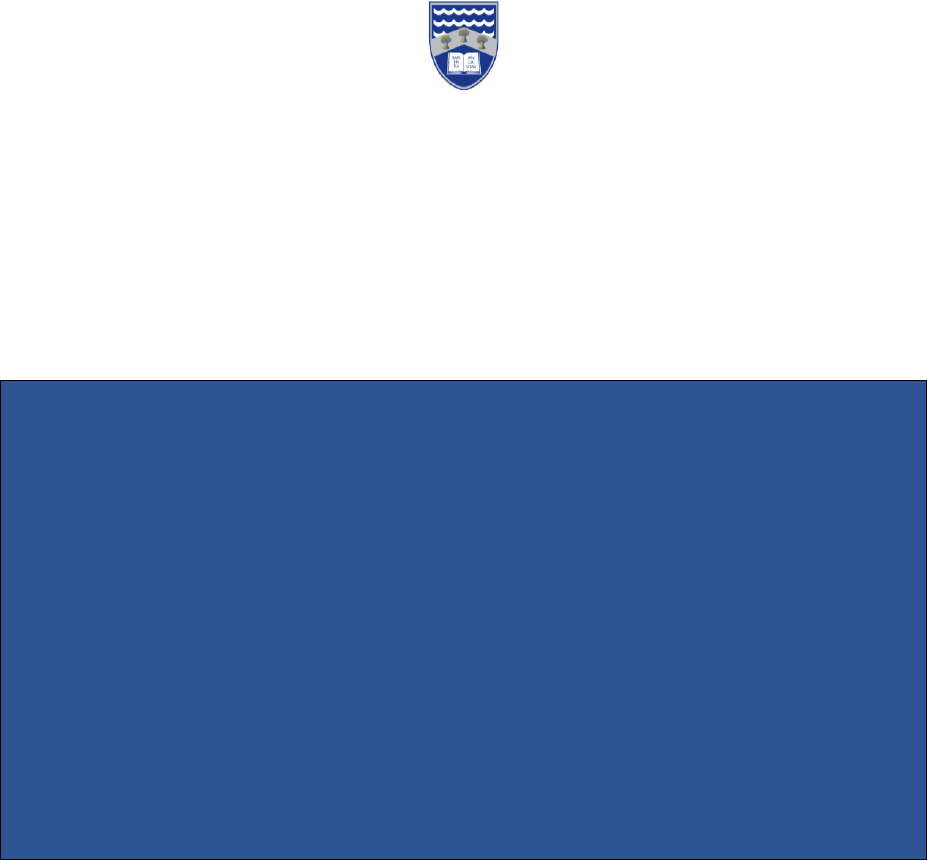
1
WIRRAL GRAMMAR SCHOOL FOR BOYS
WGSB
Handbook
2023 – 2024
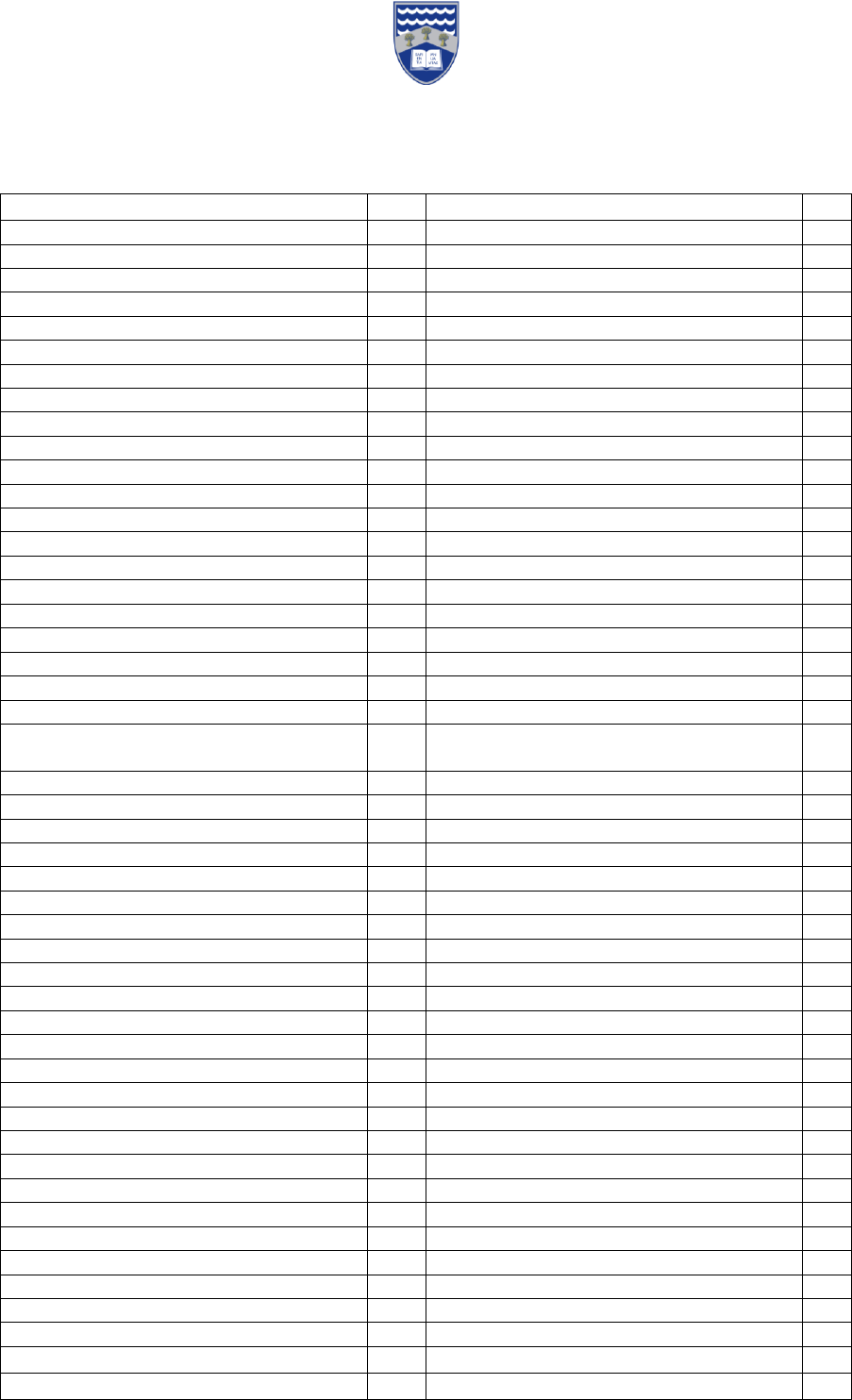
2
CONTENTS
Item
P
Item
P
WELCOME
3
OUR CURRICULUM
23
Our motto – ‘SAPIENTIA IANUA VITAI’
4
Introduction
23
Our school values
4
Key Stages 3 and 4
23
ADMISSIONS POLICY AND PROCEDURES
4
The Curriculum in Key Stage 3 (Years 7 to 9)
23
Admission of Students at the start of Year 7
4
The Curriculum in Key Stage 4 (Years 10 & 11)
24
Admission of Students into Sixth Form
4
The Curriculum in Key Stage 5 (Y 12 and 13)
24
STUDENT WELFARE
5
Teaching and Grouping Arrangements
24
The House System
5
Homework
25
Settling into a new school
5
Drama
25
Teaching Groups
6
PHSE
26
Student Support
6
Sex & Relationship Education
26
Student Records
7
Careers Guidance
27
Data Protection
7
SEND
28
Data Protection Officer
7
Equal Opportunities and Diversity
29
Health Matters
8
MONITORING & REPORTING ON PROGRESS
30
In the event of illness or accidents
8
Maximising Expectation
30
Safeguarding
8
Grading System – Years 7 to 9
30
Child Protection
8
Grading system – Years 10 & 11
30
Anti-Bullying
9
Grading system – Sixth Form
30
Site Security
9
Attitude to Learning and Barriers to Learning
31
Door and Gate Security Systems
10
ASPECTS OF OUR SCHOOL ROUTINES
32
Entrance, Car Park, Cyclists & Pedestrian
Safety
10
Timing of the School Day
32
Visitor Parking
10
Equipment
33
STUDENT INVOLVEMENT
11
Care of Exercise Books
33
Extracurricular Opportunities
11
Catering
33
Sporting Achievement and Representation
12
Use of the Learning Resource Centre
34
Student Councils
13
Security of Belongings
34
EXPECTATIONS
13
School Calendar
34
Sharing Responsibility
14
TERM DATES AND HOLIDAYS 2023 – 2024
35
Recognition and Rewards
14
MONEY MATTERS
36
Dealing with Inappropriate Conduct
15
Making Payments to School
36
APPEARANCE AND UNIFORM
15
Friends’ Programme
36
Years 7 to 11
16
MCAS
36
Sports kit
17
Cashless Catering
36
Uniform Stockists
17
Financial Support
36
Lost Property
18
Registering for Free School Meals
36
The ‘Wirral Academic Challenge’
18
PARTNERSHIPS WITH PARENTS
37
RESPONSIBILITIES
19
Partnership for Students’ Achievement
37
Attendance
19
Home: A Place to Study
37
Medical Appointments
19
Parents’ Evenings
37
Punctuality
20
ICT at Home & IT Equipment for Personal Use
37
Term Time Holidays
20
Website
38
Penalty Notices
20
Social Media
38
Absence requests etc.
21
Home Learning
38
Personal Possessions
21
The Governing Body & Parents’ Association
39
Mobile Phones/Audio Devices
21
Parents Association
39
ICT Acceptable Use Policy
22
Cars on the School Site
22

3
WELCOME
We extend a warm welcome to all parents of new students at Wirral Grammar School for Boys. The
purpose of our Parent Handbook is to provide essential information for you to support your son during
his education here. This publication is produced annually and issued to parents of all boys in all year
groups as some aspects of our school policy and procedure change from time to time.
At Wirral Grammar School for Boys, we want our students to be happy, creative, and motivated. We
believe that school should provide an energising and transformational experience. We set very high
standards and encourage all students to have high aspirations; we offer challenge and opportunities
for independent thinking through a broad curriculum that is responsive to global challenges.
Academic excellence, demonstrated by the exceptional results achieved by our students every year is
important to us, but this is only part of the education that is on offer. Our broad co-curricular
programme offers genuine enrichment inside and beyond the classroom for the students to find what
it is that inspires them.
If you are reading this Parent Handbook at the initial stage of considering the choice of school for your
son, the best way of finding out more is to come and see us at work.
Yours sincerely
S P Ascroft
Headteacher
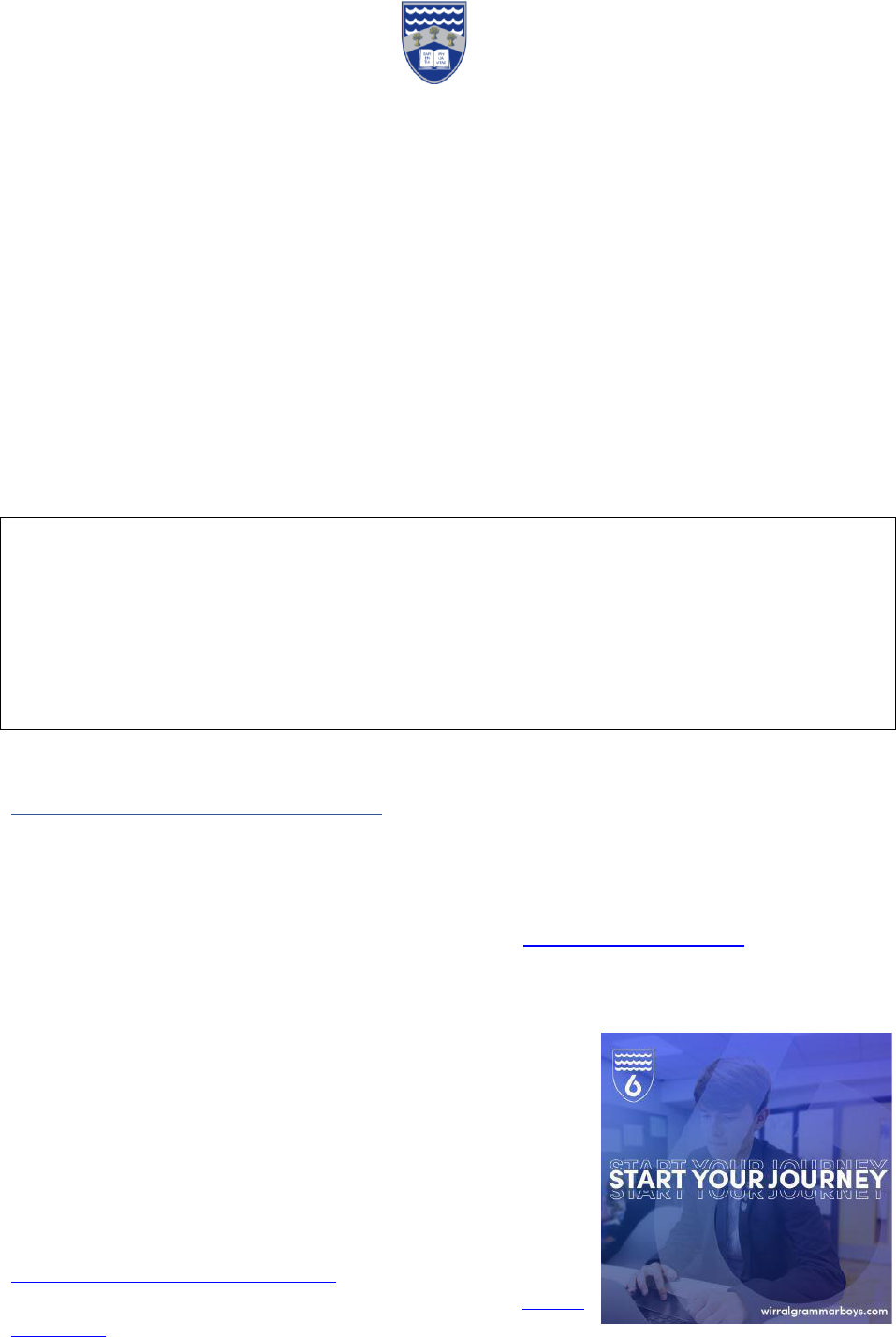
4
Our motto – ‘SAPIENTIA IANUA VITAE’
Our school motto dates back to the earliest years of the school. The Latin version is ‘Sapientia Ianua
Vitae’ which translated, means ‘Wisdom is the Gateway to Life’. The founders of our school had the
foresight to emphasise that a good education requires more than high academic achievement alone.
Our preferred definition of wisdom is ‘The ability to make reasoned judgements informed through
knowledge, depth of understanding, sound values and experiences’. At Wirral Grammar School for
Boys, our ultimate goal is to provide these elements so that our students are able to leave school as
individuals who are able to apply wisdom to both their personal and working lives.
Our school values
At Wirral Grammar School for Boys:
WGSB has a culture of care and compassion that has at its centre the wellbeing of all within the
community.
WGSB offers a breadth and variety of opportunities and experiences to all students.
WGSB has an environment where all students aspire to meet or better their personal best every day.
WGSB is a community of harmony where commonalities are celebrated, and difference is valued and
nurtured.
ADMISSIONS POLICY AND PROCEDURES
Admission of Students at the start of Year 7
All admission information can be found on our website: Main School Admissions
Admission of Students into Sixth Form
There is a separate admission procedure for students wishing to join
our Sixth Form. Further details of entry requirements are available
from the school website or from the Head of Sixth Form. Applications
should ideally be submitted during the Autumn or Spring Term of the
preceding academic year.
Each year we welcome students from other schools in the area to our
Sixth Form. Our Head of Sixth Form can be contacted via
schooloffice@wirralgrammarboys.com at any time to discuss this
further. Please refer to our school website for further details. WGSB6
Admissions
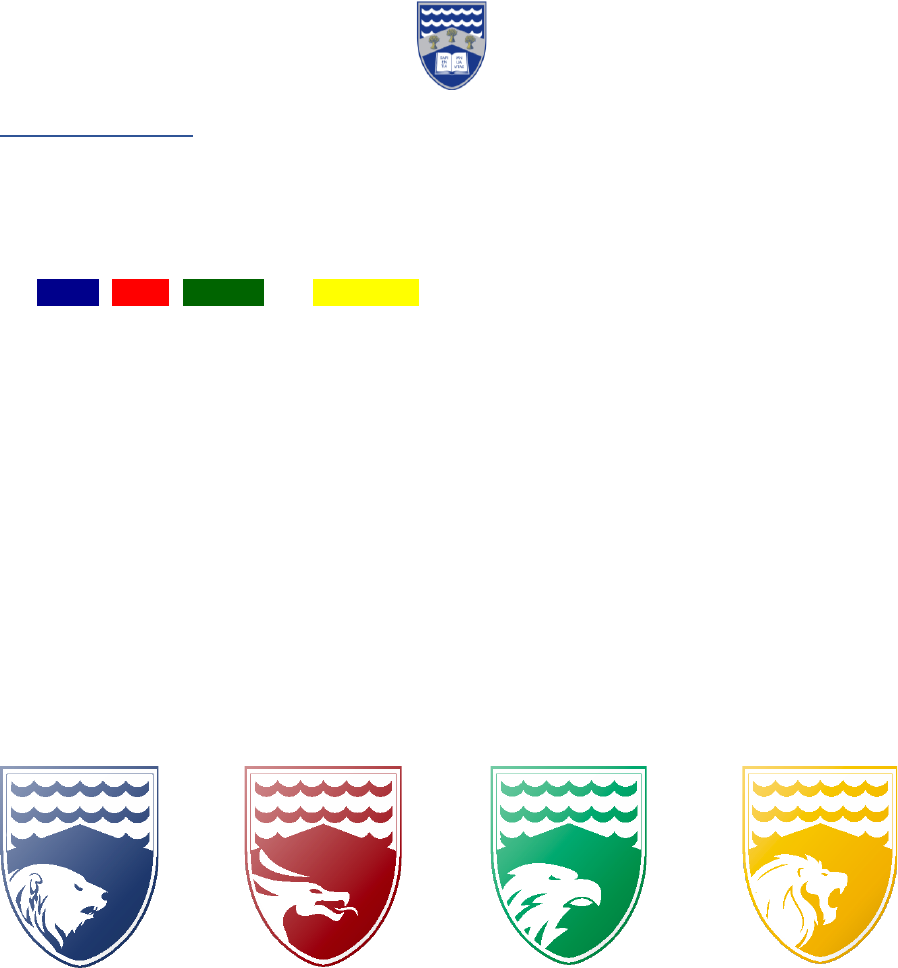
5
STUDENT WELFARE
The House System
When students join the school at the start of Year 7, they are placed into one of four Houses. These
are Barber, Dodds, Hodgson and Leverhulme (all are surnames of people who were influential in
establishing the school back in 1931).
Membership of a House is denoted by the stripe worn on the school tie (see information on uniform)
and a House badge may also be earned and worn. All students take part in House Captain Elections
each year to select their choice of Captain for the following year. The election process is modelled on
that for UK General and Local Elections thereby reinforcing the values and importance of the
democratic process.
The House system has always been part of school life and is valued for encouraging team spirit and
assisting the development of an increased sense of community.
Awards called House Commendations are given in order to recognise contribution, effort and
achievement. They reflect the fact that an individual is himself being rewarded and at the same time
contributing to success of his House. The main areas for reward are Achievement and Effort; Sport,
Music & Drama; Community and Leadership.
Settling into a new school
Helping your son to adjust to his new school is a key priority for us. Before the start of the school year,
all Year 6 boys visit the school and take part in a Welcome Day; boys will have the opportunity to
familiarise themselves with the school, meet their Form Tutor and Head of Year and experience a few
lessons.
We appreciate that settling into a new school takes time; getting used to a larger environment and
experiencing new subjects for the first time. Tutors, subject teachers and student mentors will be on
hand to provide guidance and support.
Once the term has started, parents first point of contact is their son’s Form Tutor via the school office
email (schooloffice@wirralgrammarboys.com) at any time but are asked to remember that these
colleagues have classes to teach and may not be readily available. Please follow the guidance on
communication and note that you must not contact staff directly via email.

6
Teaching Groups
Boys are taught in their Form Group for most of their lessons in Year 7. These groups are mixed ability
and all boys in a group are of the same age. Of course, ‘mixed ability’ in a Grammar School context
means that all boys are of the same upper ranges of ability.
Although a boy’s pastoral care is the responsibility of his Form Tutor, each Year 7 student will have
Peer Support Group (PSG) member to support him as well. The PSG member is usually a Year 12
student who has been trained to support students and is able to provide very practical advice in a very
supportive manner.
Unlike Form Groups, boys do not remain in the same Teaching Group throughout their time in the
school. If considered beneficial, movement may take place during a year, but this is less likely than at
the start of a new academic year.
Student Support
• Form Tutor
• Head of Year
• Pastoral Support Manager
• Learning Mentor
Your son will have the same Form Tutor during the year. Other than when there is an assembly, your
son will meet with his Form Tutor each day during House Tutorial time (9.00am – 9.20am). Your son’s
Form Tutor will address any immediate concerns and is the first point of contact for parents.
Although Form Tutors are the first point of contact, Heads of Year will deal with matters which are
more urgent or of a more serious nature. He or she will deal with any such concerns and will arrange
to speak to or meet parents as the need arises. It would be of considerable help to us if you would let
the school know of any home circumstances which may affect your son’s concentration and attitude
to his work. As Heads of Year have classes to teach and may not be readily available, your concern
may be dealt with by the Pastoral Support Manager in the first instance.

7
If you wish to discuss your son’s work, conduct or issues of a personal nature, you are very welcome.
Parents should make an appointment to see the appropriate Form Tutor or Head of Year, either by
emailing (schooloffice@wirralgrammarboys.com), or telephoning the school office (0151 644 0908).
Please note it is often not possible for teachers, other than Heads of Year, to speak to parents on some
occasions due to their teaching commitments. In addition, as Heads of Year also have a heavy teaching
commitment, they may not always be available at short notice. Once again, our Pastoral Support
Manager will therefore often take messages and help wherever possible.
Our Learning Mentor is a full-time member of our support staff and is on hand to address any personal
concerns that your son may have, particularly if they are a barrier to his learning. Meetings between
students and our Learning Mentor often take place on an individual basis. The Learning Mentor will
liaise with parents where there are concerns that are affecting a boy’s well-being.
Student Records
To help us to support your son, it is important that our records are kept up to date. Essential
information includes names, addresses, emergency telephone numbers, medical details and email
addresses. This information is essential should there ever be an emergency. It is particularly important
for us to have a number on which we can contact you during the school day.
We use a system called ‘MCAS’ (My Child at School) for issuing routine letters and our regular Parent
Update Letter. It is therefore essential that email addresses are kept up to date as this aids the
reliability of this as a means of communication.
Data Protection
The school stores and handles personally sensitive information on a daily basis and is committed to
protecting the privacy and security of personal information as required by the General Data Protection
Regulation (GDPR).
As well as controlling and processing data, we are required by law to share personal data with other
agencies and professional services, where the Law does not apply we will ask for consent. For more
details please refer to our Privacy Notice for Students and Parents under the policies section of our
website.
Data Protection Officer
The Data Protection Officer is responsible for overseeing data protection within the School so if you
do have any questions in this regard, please do contact them on the information below: -
Data Protection Officer: Judicium Consulting Ltd
Address: 72 Cannon Street, London, EC4N 6AE
Email: dataservic[email protected]
Telephone: 0203 326 9174
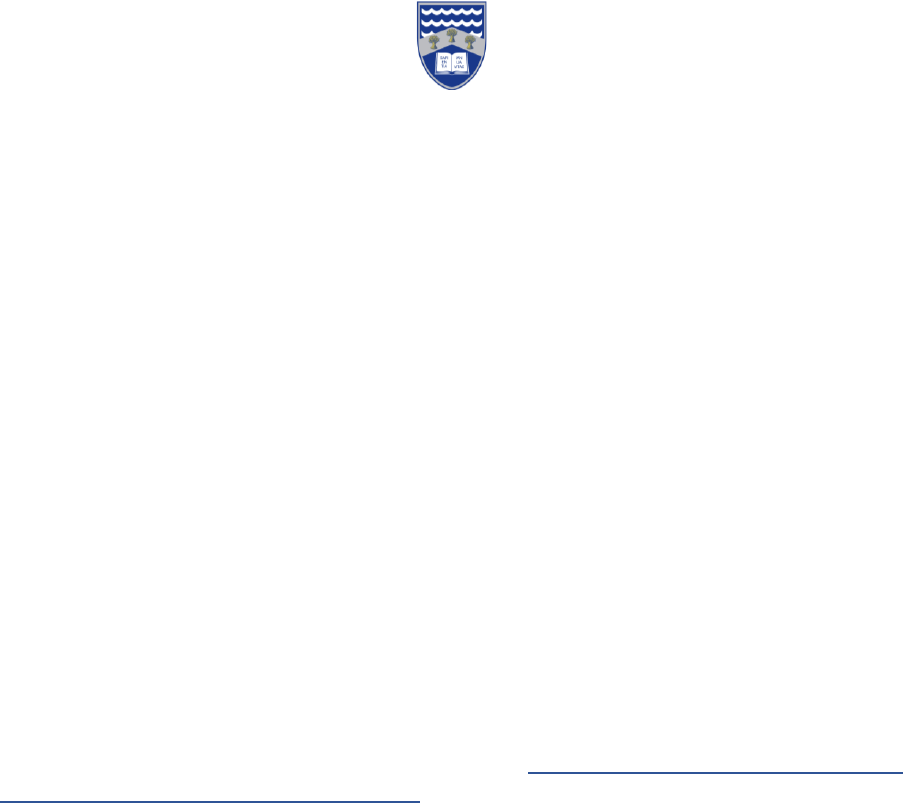
8
Health Matters
To provide the best possible care for your son whilst in school, we need to be aware of any factors
that concern his health. It is particularly important to inform us of medical conditions that may require
prompt action.
Unless there are exceptional circumstances, the school staff do not administer medicines to students.
However, if it is agreed that there are such circumstances, the taking of medicines would be supervised
by the school office (first aider) but only on receipt of a completed ‘Administering Medicines Consent
Form’. The form is in appendix A of this document and can also be emailed to you via the school office
or given as a paper copy to your son. Details of the type of medicine, dosage etc should be clearly
provided. The medication will be stored in the main school office.
The use of inhalers is the student’s responsibility, and these are not stored centrally. Epi-pens are
stored in the main office (as a ‘spare’), but the majority of students also carry one with them. It is the
student’s responsibility to carry their epi-pen with them to Physical Education and sports events.
Students whose health might have an impact on their education have an Individual Health Care Plan
drawn up by the SENDCo.
In the event of illness or accidents
If it is felt that your son is not well enough to remain in school, then a member of our school office
staff will contact you to arrange for his safe return home. Please do not collect your son unless you
have been contacted by a member of the staff. No pupil under the age of 18 is allowed to go home
without parental permission.
Having up-to-date records is essential for this purpose. In the event of an emergency requiring hospital
treatment, our first step will be to call an ambulance while at the same time seeking contact with a
parent. If necessary, your son will be taken to hospital by ambulance and if you are not available, he
will be accompanied by a member of our staff.
For information relating to notifying the school of a boy’s absence due to ill health, please refer to the
section in “Attendance and Punctuality” in this Handbook.
Safeguarding
‘Safeguarding’ is a term that encompasses a wide range of approaches to ensure that each and every
pupil is free from harm. Wirral Grammar School for Boys has rigorous procedures in place to ensure
that staff are suitably qualified to work with children and young people. All staff are DBS checked at
the time of appointment.
Child Protection
Children and young persons have individual rights in law. Above all, they have the right to have their
basic needs met and to be free from harm. At the heart of our child protection policy is the immediate
liaison with the social services section of the Wirral Safeguarding Children Board.

9
A member of the school’s Senior Leadership Team has specific responsibility for child protection
issues. Our Designated Safeguarding Lead (DSL) is Mr Peter Harrison who is the Deputy Headteacher
responsible for Student Welfare and Safeguarding. Our Deputy Designated Safeguarding Lead (DDSL)
is Mr Daniel Ingram.
Anti-Bullying
Regretfully, bullying is something which can occur in any school. We define bullying behaviour as that
which is intended to be deliberately hurtful towards another person, particularly when this behaviour
is repeated over time. Our prime concern is for the safety of each individual. We address bullying in
three ways:
1. we seek to prevent it through education and early warning systems
2. we actively encourage students to report incidents of bullying
3. we investigate all allegations.
At the heart of our Anti-Bullying Policy is the message that this conduct is unacceptable. Boys are
encouraged to tell a member of staff or e-mail the Peer Support Group (PSG). The action we take
varies but the priority is for the bullying to be stopped and for the victim to feel safe and secure
without fear of reprisal.
The Peer Support Group (PSG) is a support scheme consisting of Sixth Form students who are assigned
to a teaching group in Year 7 but are also available to assist boys of all ages. The PSG is a group of
friendly, helpful and understanding older students, who offer guidance and advice to students who
are witnessing or experiencing bullying.
The School’s Anti-Bullying Policy is part of our (School) Behaviour for Learning Policy which can be
accessed via the ‘Parents’ section of our website.
Site Security
We go to great lengths to ensure that our school site is safe and secure for all. At breaks and
lunchtimes, staff patrol the site and provide supervision in the main student areas. For security
reasons, we expect all boys, other than sixth form students, to be on the school site at breaks and
lunchtimes.
We have CCTV coverage in most of the communal areas of the school (Dining Hall, corridors, stairs
and playground areas). Access to these images is restricted and they may be used to assist in the
management of the school and student behaviour.
To assist in the security of the school both during the day and after hours, a magnetic door locking
system operates on the main external gates and internal doors. Access to the main car park is
restricted to staff only. At breaks and lunchtimes, senior staff and duty assistants patrol the site and
wear high visibility coats and carry radios to assist with communication; they are on hand to ensure
that lunchtimes are orderly and boys have a point of contact.
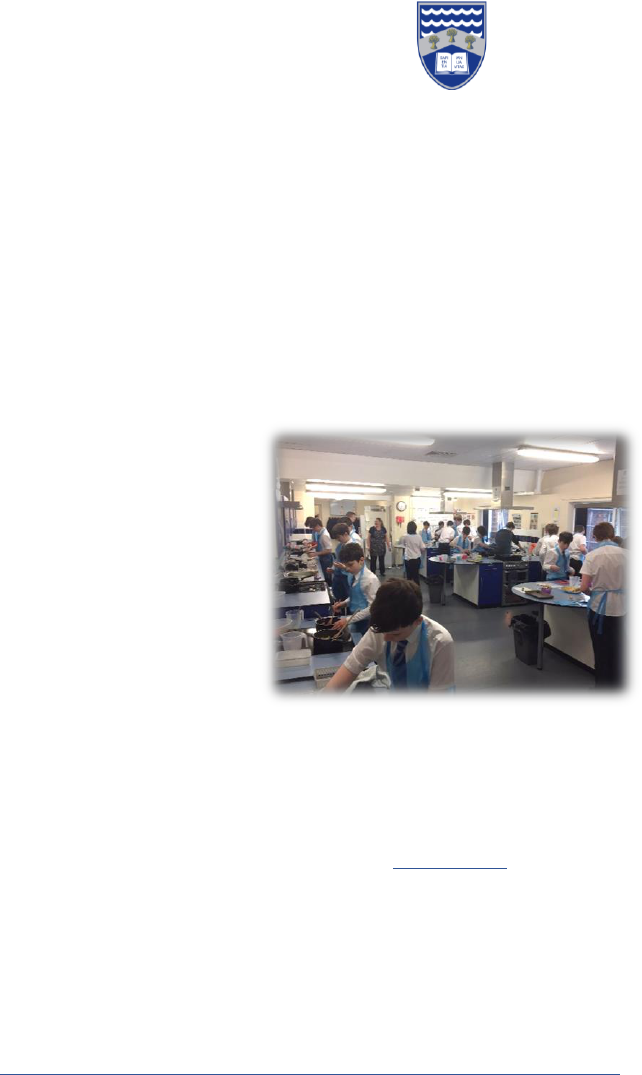
10
Door and Gate Security Systems
Our door and gate security systems ensure that our site is always as secure as possible throughout the
day thereby protecting both students and staff. To ensure that the system is successful and provides
the increased level of security, all students and staff have a thumb scan undertaken. The scan is then
converted to an encrypted number via a proprietary algorithm to operate the opening of a door when
the thumb is placed on the reader. This number is unique to the software and cannot be read or passed
to any other system which in turn does not allow for the identification of the individual to be
established. The Biometric Template Capture software is compliant with industry standards. All data
and information is retained on site and is not shared with any third party.
Entrance, Car Park, Cyclists and Pedestrian Safety
In the morning and after school the entrance to the school site becomes very busy. Parents are
requested to do drop off or collect their son WELL AWAY from the school gates. As boys walk onto the
school site, they will do so either via the pedestrian entrance by the school dining hall or, as is the case
for most, via one of the two pedestrian gates either side of the main car park entrance.
We encourage students to travel to school on foot, public transport or bikes. Students are expected
to follow the highway code when using surrounding roads (including not cycling on the pavement), to
wear a cycle helmet and to not ride their bikes once on the school site.
Boys must not walk through the gates that are used by motor vehicles. Within the school site, students
must use the zebra crossings when crossing the car park.
Sixth Form students with cars are not permitted to park on-site. We actively encourage sixth form
students to travel to school on foot, public transport or on bikes. If they must travel by car, we ask
that they park considerately in the surrounding area.
Visitor Parking
On-site parking for visitors to the school during the school day is situated near the driveway entrance.
Four numbered parking bays are clearly marked. There is also on street parking between the hours of
9.30-3.30pm. Visitors should walk directly to the main entrance at the front of the school on Cross
Lane to sign in.

11
STUDENT INVOLVEMENT
Extracurricular Opportunities
Alongside academic achievement, we believe that it is important to enrich our students with wide-
ranging opportunities for sport, music, performance, visits, competitions and subject-related activity
clubs.
At Wirral Grammar School we are very proud of the breadth of extra-curricular experience available.
Ofsted noted:
“The extra-curricular activities are the jewel in the school’s crown; they contribute enormously to
students’ personal development and well-being.”
Examples of some of the opportunities that are available includes:
• Extensive sport provision including rugby, hockey, handball, orienteering, basketball, golf,
volleyball, cricket and athletics.
• Clubs relating to curricular subjects including: Science, Art, Drama, ICT, Maths and English to
name a few.
• Sports tours overseas.
• Music tours to Europe.
• Duke of Edinburgh Bronze Silver and Gold Awards with expeditions in North Wales, Cheshire
and the Peak District.
• History visits to Germany, Holland, France and Geography trips to Iceland.
• Music tuition with over 300 boys being taught to play different instruments by numerous
peripatetic music tutors. There are opportunities to join an orchestra or to perform in one of
the many ensembles, choirs, rock groups and other assorted musical gatherings and clubs.
• School drama productions with at least one major performance each year.
• Language visits overseas to both France and Spain.
More in-depth information can be found on our website
https://www.wirralgrammarboys.com/clubs-and-societies/

12
Sporting Achievement and Representation
Our school has a superb reputation for success in competitive sports.
In 1931, rugby was established as the school’s main winter game. Our commitment to rugby, hockey,
cricket and athletics is both a hallmark and tradition of our school and boys who represent the school
have an obvious commitment to the programme of out-of-school hours fixtures.
Boys compete in a variety of sports to a high level and in recent years we have had national and
regional successes in all sports. It is not unusual for 250 or more boys to be participating in sport
fixtures on a Saturday and after school during the week.
Our fixture lists include a mixture of state and independent schools, and our teams compete at local,
regional and national levels. For more details follow our PE Twitter feed @WGSBPE
You can also obtain fixture information via our SOCS Sports Website -
https://sport.wirralgrammarboys.com/
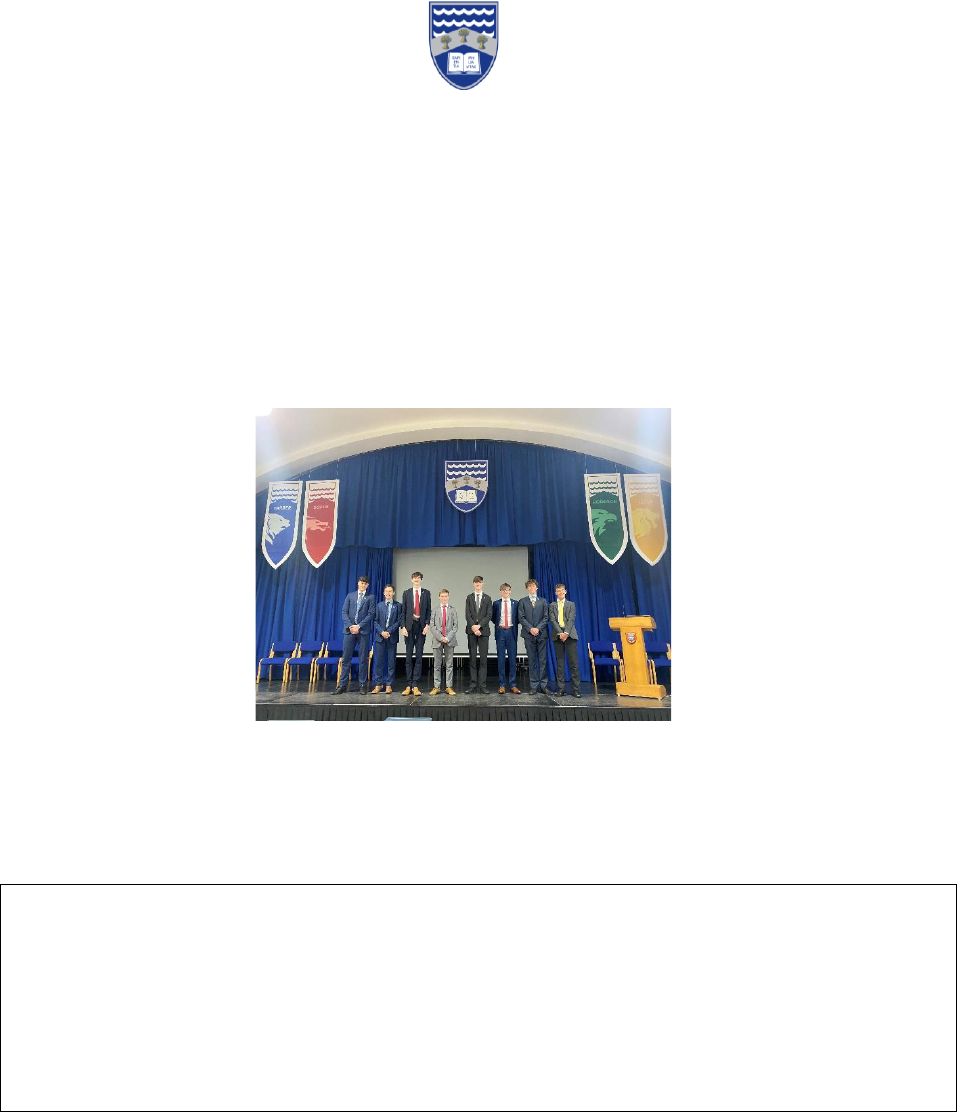
13
Student Councils
There are many opportunities for students to take a lead and work on projects and activities that
enhance school life in a variety of ways. House Councils are made up of boys from each of the four
Houses and they focus on the development of House competitions, events, and charity fundraising.
The School Council is made up of boys from each year group. The focus for the School Council varies
from year to year. Recent examples of improvement projects have included: dining hall catering and
lunchtime arrangements and storage of belongings.
EXPECTATIONS
VALUES STATEMENT
WGSB has a culture of care and compassion that has at its centre the wellbeing of all within the
community.
WGSB offers a breadth and variety of opportunities and experiences to all students.
WGSB has an environment where all students aspire to meet or better their personal best every day.
WGSB is a community of harmony where commonalities are celebrated, and difference is valued and
nurtured.
We have the highest expectations of our students. The maintenance of an orderly learning
environment is an essential feature of school life. Each student has seven precious years in which to
optimise his potential. Consequently, poor behaviour cannot be tolerated and firm, but fair sanctions
are applied.
We expect the following of our students:
1. Students should uphold the values of the school
2. Students are respectful and courteous to all staff and peers
3. Students should come to school prepared and equipped to learn
4. Students should celebrate the success of others
5. Students should adhere to the uniform guidance
6. Students should never behave in a manner which cause injury or offence to others

14
Boys may have water to drink during lessons whenever the teacher feels that this is practical. Drinks
other than water are not permitted in lessons. “Sports Cap” bottles are ideal for this purpose. Water
bottles can only be filled before school, at break and lunchtime.
Sharing Responsibility
Promoting positive behaviour is the collective responsibility of parents, staff and students. Parents
and carers take responsibility for the behaviour of the child both inside and outside the school. As a
school we have excellent parent support, attendance at Parents’ Evenings is very high and whenever
the school imposes a sanction, parents provide their support.
We see the success of students as the product of a purposeful partnership between home and school.
While we try to get things right, mistakes are occasionally made but, when complaining about the
actions of the school (for example a sanction imposed on your son), we ask you to consider how any
perceived lack of support for the school’s position may be interpreted by your son.
Please refer to the Parent Code of Conduct on the school website - Parent Code of Conduct
Recognition and Rewards
Central to our conduct policy is an emphasis on promoting good behaviour and high achievement
through positive reward. Good behaviour, attendance, sustained effort etc. are all promoted.
Reward categories are:
• Academic Excellence
• Persistence/Perseverance (Improvement)
• Participation – Leadership, Music, Sport, Enterprise
• Helping others
Methods of reward include:
• Praise, encouragement and positive feed-back from teachers and the awarding of House
Commendations.
• Certificates are awarded when students achieve high levels of House Commendations.
• Individual and team successes are celebrated in assemblies and during the House Group tutorial.
• Letters of congratulation are sent to parents from the Headteacher and Head of Year where boys
have sustained high achievement.
The school has rewards in the form of badges awarded to students achieving excellence in a range of
categories.

15
Regular termly events celebrate the success of our students. The school holds an annual Awards
Ceremony at the end of the academic year when achievement, both academic and non-academic is
publicly recognised.
Additionally, each House also holds its own House Award Ceremony.
Dealing with Inappropriate Conduct
We employ a range of strategies and parents can obtain full details in the school’s Behaviour for
Learning Policy available in the ‘Parents’ section of our website.
A formal reprimand is one entered by a teacher on a boy’s record. This may come following a previous
verbal warning or may be the immediate sanction if the teacher deems the matter serious enough.
Reprimands may also be given if work is incomplete due to lack of effort rather than lack of
understanding. The boy will be informed that he has been given a reprimand by the teacher. The boy’s
Form Tutor or Head of Year might wish to discuss such reprimands with him later.
If a significant number of reprimands are accrued during a fixed period, an after-school detention will
follow of which parents are notified in writing. Lunchtime detentions are also used as a sanction but
as they do not involve boys being late home, notice is not given of these.
When concerns about conduct or work are on-going, a boy may be placed on a lesson-by-lesson report
for a fixed period. Parents will be informed and asked to help monitor such reports. In school, such
reports will be monitored by the boy’s Form Tutor, Head of Year, Assistant Headteacher or Deputy
Headteacher as appropriate
Following more serious incidents, a boy may be made to work in supervised isolation in the school’s
Referral Room. This may be pending an investigation of the incident or for serious misbehaviour that
falls short of warranting exclusion from school.
Sometimes, use of the Referral Room is made to de-escalate a situation. However, for the most serious
incidents, the school does reserve the right to impose a fixed-term exclusion from school. In such
cases, the Headteacher may wish to meet with the boy and his parents on his return.
Permanent exclusions from school are the most serious sanction imposed. It is extremely rare indeed
for a boy to be permanently excluded from school, but this sanction does exist as a possibility.
Permanent exclusion can result from a single act of inappropriate behaviour, for example, violent, pre-
meditated assault, drug use or for persistent non-compliance with school rules.
APPEARANCE AND UNIFORM
Uniform is compulsory for all students. Where a boy is not adhering to the uniform policy this needs
to be addressed swiftly.

16
Years 7 to 11
✓ A black WGSB blazer with blue trimmings on pockets and a school badge.
✓ Charcoal grey trousers
✓ Plain white shirt.
✓ House ties as follows:
Barber White
Dodds Red
Hodgson Green
Lever Yellow
✓ Dark grey or black socks.
✓ Black shoes (not boots, trainers or any such variation)
✓ Boys may wear a plain black V-neck pullover (no logo)
Training Shoes must not be worn for school.
Hooded Tops (‘Hoodies’) are not suitable as outdoor coats on school days and are not permitted –
even when worn innocently they can give out an image which the school is keen not to promote.
It is entirely appropriate for boys to wear coats over their blazers during periods of inclement weather.
Coats should be economical to purchase and must not be expensive ‘designer’ brands.
Coats may be worn to and from school and during break and lunchtime whilst outside, but not inside
the building.
Excessively long hair that is not tied back or excessively short hair, dyed hair, or eccentric styling (for
example mixed ‘short and long’ cut hair) are not permitted, nor are earrings or any other form of
jewellery. This is an area with which the school makes a particular plea for support from parents.
The school is an open community which accepts differing cultural and religious backgrounds with a
range of associated appearances and hairstyles. Our purpose is to ensure that all students feel equally
valued.
Any boy who reports for school who is in breach of any of the uniform requirements may have to work
in isolation or be sent home to change. In such circumstances, parents will be informed.
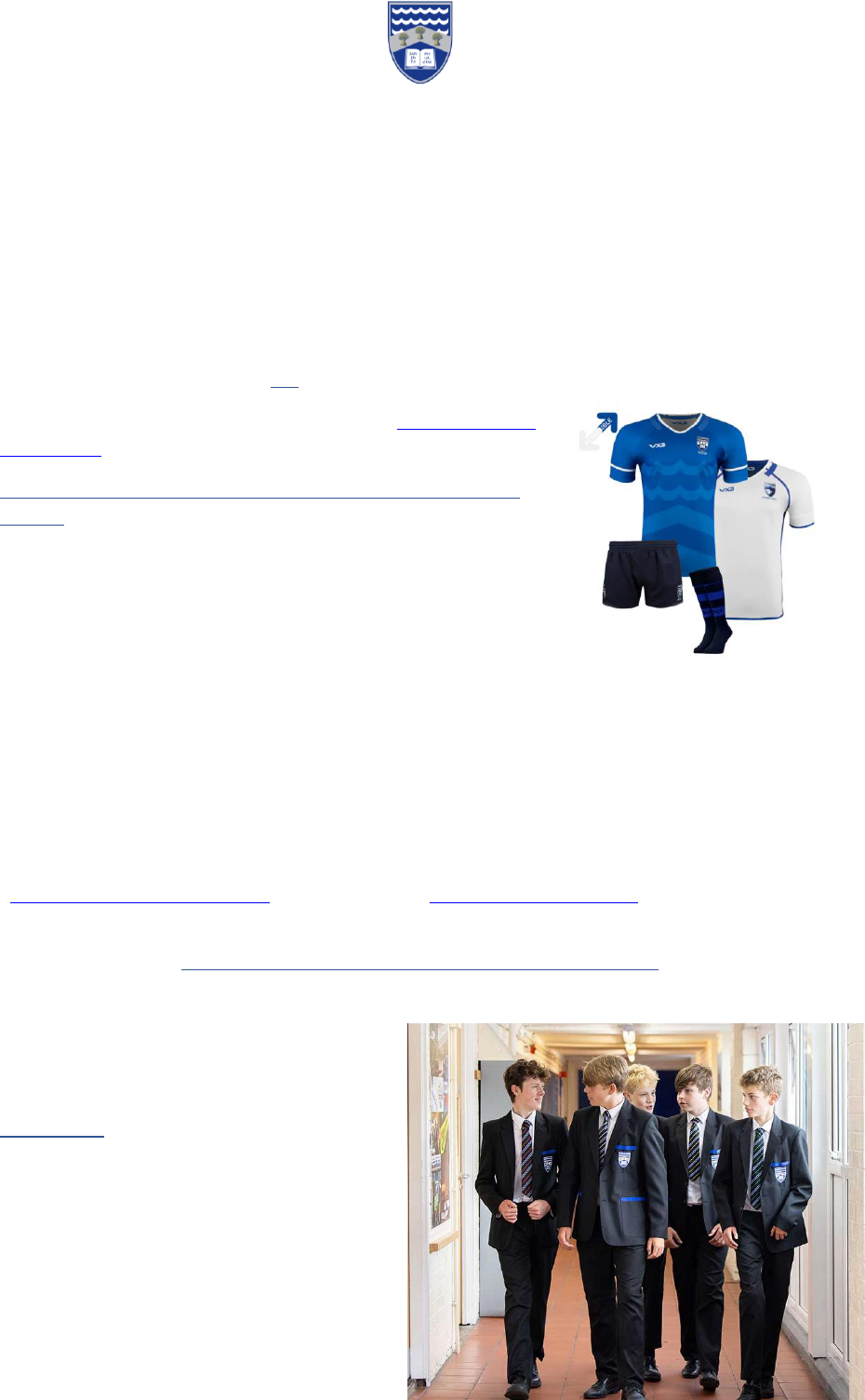
17
Sports kit
For Games/PE lessons, a reversible House shirt, navy blue shorts, navy blue socks with royal blue
stripes and appropriate footwear - football/rugby boots (fitted with correct safety studs), outdoor
training shoes and indoor/clean training shoes.
We strongly recommend the use of mouth guards for both rugby and hockey.
For cricket, we are mindful of the fact that the cricket season is comparably short. Boys may purchase
cricket whites including white/cream polo short/sweater and white/cream trousers and are
encouraged to do so. These items tend to be available competitively priced from wholesale retailers.
Boys who play cricket for school are required to wear cricket whites.
All sports wear is purchased online with VX3 - WGSB Sports Kit
Online Shop
Please note that it is compulsory to purchase the below items
via VX3
• VX3 Sports shorts
• VX3 Reversible sports top
• VX3 Hooped playing socks
Uniform Stockists
Wirral Uniform Centre and Cains of Heswall are authorised suppliers of our official school uniform
together with other authorised items of equipment.
You can order online from either retailer or visit their shops – details below.
Wirral Uniform Centre
2a Princes Pavement, Birkenhead, CH41 2XY
0151 647 9588
Wirral Uniform Centre Website
Cains of Heswall
187 Telegraph Rd, Heswall, CH60 7SE
0151 342 1769
Cains of Heswall Website
Compulsory branded items are our blazer and house tie.
Please note: Pupils in receipt of free school
meals will receive an initial uniform ‘bundle’
consisting of a blazer, tie, rugby shirt, shorts,
and socks.
Students should have their name marked in
every piece of uniform.
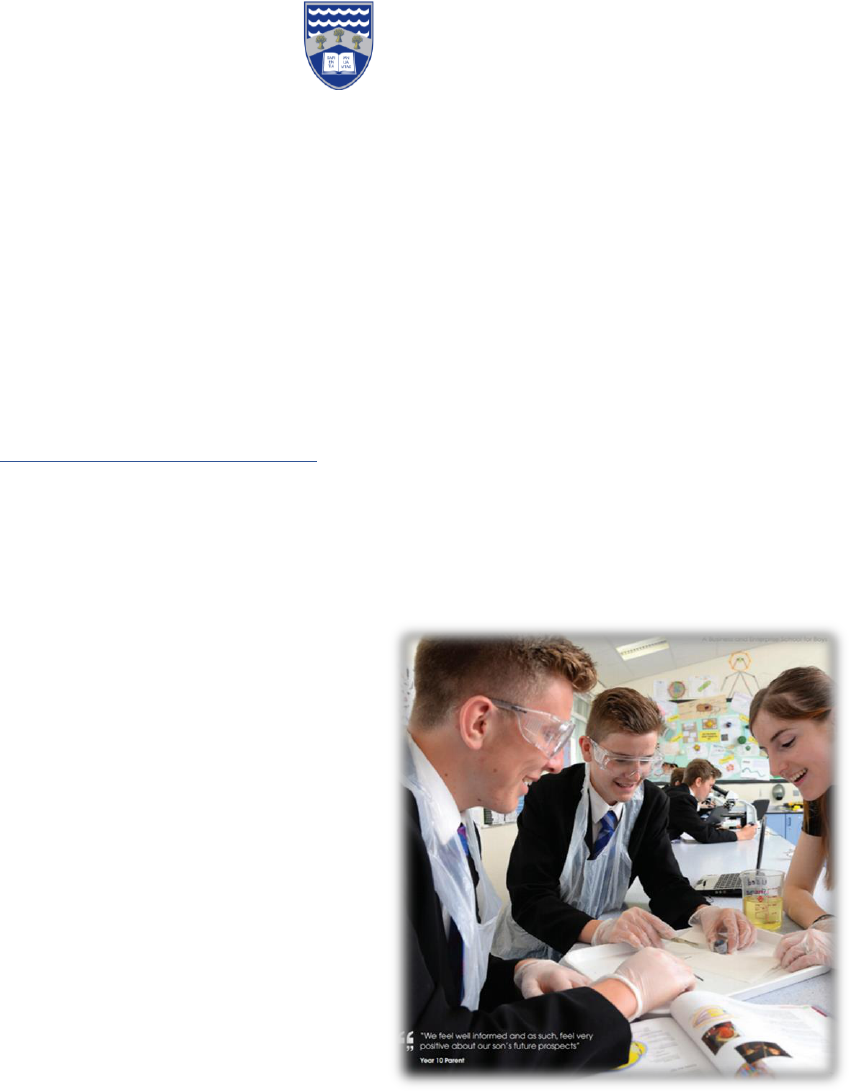
18
Lost Property Service
The school operates a Lost Property Service, the co-ordinator for which, is Mr Newman.
Unclaimed lost property has been a growing concern to us and results in considerable replacement
expenses for parents. In order to address the problem, the following arrangements have been put in
place:
a) The Lost Property Room is located near the gym, next to the playground entrance.
b) Pupils should speak to Mr Newman to enquire when the room is open
c) Most of the lost property is unnamed. This means that we cannot return the lost items to their
owners. Please ensure all items are named.
d) If your son has lost an item, please remind him to go to the Lost Property Room.
e) At the end of each term, unclaimed lost property will be given to local charities.
The ‘Wirral Academic Challenge’
As an approach to promote independent study, all
boys in Years 7 and 8 are issued with a number of
‘Academic Challenges’ each year. These comprise a list
of three or four essay titles from which boys choose
one to complete within a set time.
The essays are marked by the Head Boy Team using
clearly defined criteria. Marks are awarded as ‘House
Commendations’ from 0 to 5.
We believe the Academic Challenge serves to promote
an interest in finding things our and thereby supports
independent study.

19
RESPONSIBILITIES
Attendance
Regular attendance is a high priority. This aids achievement and encourages boys to adopt the correct
attitude towards school and ultimately in the future, their place of work. We actively promote high
attendance because of its links to high levels of progress and achievement.
In addition, the school will periodically write to parents if we feel levels of absence need to be
highlighted and addressed if appropriate.
Parents have the legal duty to make sure children attend school. Permitting unauthorised absence
from school is an offence. In line with new national requirements, schools can impose fines where
persistent unauthorised absence occurs.
Authorised absences are mornings or afternoons away from school for a justifiable reason (e.g., illness
or other unavoidable, exceptional causes).
Unauthorised absences are those which the school does not consider reasonable and for which no
“leave” has been given. This includes keeping children off school unnecessarily, truancy, absences
which have not been properly explained and absences for holiday where this is clearly to the detriment
of a boy’s education (for example when tests or exams are taking place).
Please note that the school alone decides if an absence is authorised or unauthorised.
Absences cannot be authorised if the following procedures are not followed. If your son is unfit for
school, parents should contact the school by telephone or email absence@wirralgrammarboys.com
by 9:30am at the latest. For Safeguarding reasons, we require an absence to be reported every day.
The exception being, if you know that your son will be off for a certain period of time, this can be
indicated in the email and then followed up, if necessary, in the normal way once the end date has
passed.
On your son return to school, written confirmation of the absence is required in form of an email to
absence@wirralgrammarboys.com. Alternatively, a written note can be handed to the Attendance
Officer, Mrs Jones, in the Pastoral Hub. Please note if an email was used to inform of the absence in
the morning, a further email is not required for that same day, the original email acts as the absence
note for that day.
In order to prevent misuse of the email system, the school office is asked to ring a random sample of
parents to check the authenticity of emails. Please do not be offended if we check up on your son’s
absence in this way – the process is a random one designed to safeguard all.
Medical Appointments
Medical appointments for your son should ideally be made out of school hours or outside of term
time. We do however understand that this is not always possible and would ask you to follow the
below procedure:-
• Email absence@wirralgrammarboys.com giving details of appointment and collection time.
• Students to be advised by parent/carer to leave their lesson on time.
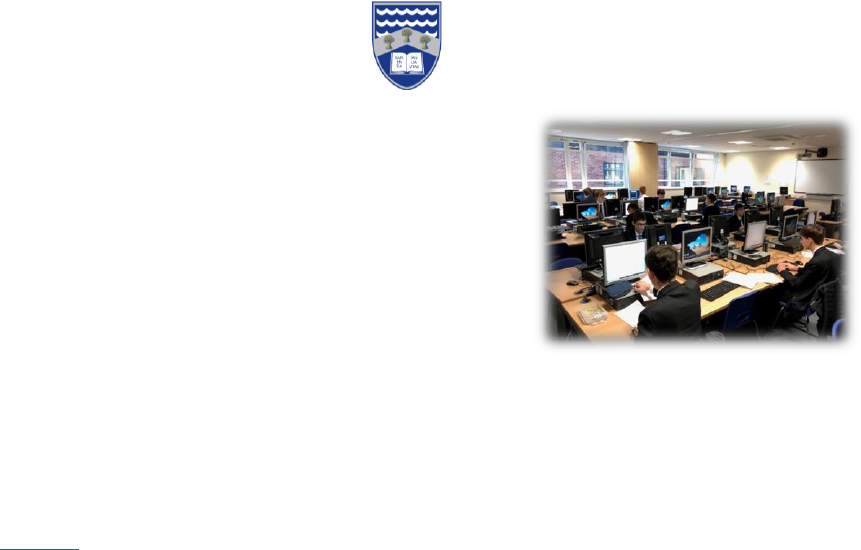
20
• Student is required to sign out at the Pastoral Hub
before being collected from School Reception.
• Upon return to school the student is required to sign
back in at the Pastoral Hub.
Punctuality
Students are expected to be at registration by 8.55 am and for afternoon, 1.35 pm.
Boys who arrive late must enter the school via the school office and sign in at the Pastoral Hub.
Please note that boys in Year 7 – Year 11 are not allowed to leave the school site at lunch time unless
they go home for lunch with parents’ permission. However, it is extremely rare for a boy in Year 7 to
Year 11 to go home for lunch – in most years there are no boys who do so.
Sixth Form students are expected to follow the expectations above, with and understanding that they
may leave the school site at break and lunchtime, but must be on site for all timetabled lessons,
including mentoring periods, speakers’ sessions and enrichment activities.
Term Time Holidays
Please note that the new national regulations are very clear and specifically state:
“Headteachers may not grant any leave of absence during term time”
There may be rare occasions where there is an exceptional need for a pupil to be absent. Please note
that ‘exceptional’ does not include general requests for holidays or availability based on employers’
staffing arrangements. Similarly, requests for the authorisation of ‘long weekends’ will be declined.
The Department for Education requirement states “the current law does not give any entitlement to
parents to take their child on holiday during term time”. To provide an indication of ‘exceptional
circumstances’ in the last twelve months, holiday requests have been granted in relation to extended
family illness and in another case, a bereavement. Please note that if a pupil is absent from school and
authorisation has not been given, then this is classed the same as ‘truancy’.
Penalty Notices
The Department for Education regulations set out the procedures for issuing penalty notices (fines) to
each parent who fails to ensure their child’s regular attendance at school.
From September 2013, parents must pay £60 within 21 days or £120 within 28 days.

21
Absence requests to take part in sporting events etc.
We are aware that some boys excel at particular sports and take part in individual and team activities
at a high level (regional and national). We do try to accommodate exceptional requests for absence
of this kind, if there are no formal assessments/examinations taking place.
Such absence requests should be directed to the Deputy Headteacher for Student Welfare and
Safeguarding.
Permission will not be given for requests to participate in the watching of a sporting event.
Personal Possessions
We regret that we are unable to accept responsibility for boys’ personal possessions that are lost or
damaged in school. Please do not allow your son to bring expensive items or large amounts of cash
into school. Expensive mobile phones are a common lost item and parents are advised not to buy
expensive phones for their son. As a school, we cannot take responsibility for lost mobile phones.
Students bringing sports equipment should mark their names on all items.
Students who bring instruments to school for music should place these in their lockers or in the music
storeroom. This can be arranged either through the House Group Tutor or the Music Department.
Parents are advised to ensure that instruments are ‘covered’ by household insurance arrangements;
the same applies to net book computers/laptops and tablets.
Mobile Phones/Audio Devices
We understand that mobile phones provide both parents and students with security and there is, on
occasion, the need to communicate before or after school. However, the following is a Core
Expectation of the students with respect to the use of mobile telephones: “While they may be brought
to school, mobile telephones must switched off on arrival on the site and remain in a pocket or a bag
until the end of the school day”.
During the school day, mobiles must not be used for phoning, messaging, recording and photography,
as a clock or as a calculator. Boys seen using mobile phones will have them confiscated and they will
not be available for collection until the end of the following school day.
A phone will only be returned the same day if a parent is prepared to collect it from reception (up to
4.15pm Monday to Thursday, and 4.00pm on Friday). In the case of repeat offenders, the phone will
not be returned to the boy and we will require a parent to collect the confiscated item.
The exception is for a class activity directed by staff or for Sixth Form students who may use such
devices in areas of private study during lesson time only. Sixth Form students are not permitted to use
phones in corridors or at break and lunchtime in communal areas where younger boys are present.
Any boy who needs to contact parents during the school day may approach the school office and
request to call home.

22
ICT Acceptable Use Policy
Students and parents are required to sign the policy. The full document is issued separately from
school when your son starts.
We take the view that ICT has the potential to enrich students’ learning in new and exciting ways.
However, with the provision and use of ICT go responsibilities for ensuring that its use is appropriate
and user confidentiality is maintained. Abuse of our ICT infrastructure, internet or e-mail is taken
seriously and will be dealt with in line with the school’s Behaviour Policy.
We welcome students to bring their own devices, however, students must check with teachers before
they start to use it in lesson. Additionally, students must ensure that any mobile data connection is
disabled, and all devices must be checked for viruses and malware regularly.
For further details, please refer to our e-safety area on the website.
Cars on the School Site
a) Parents
Please note that for safety reasons, parents MUST NOT drive onto the school site at the start or end
of school. If you are dropping your son off due to an injury or incapacity, please use the Visitors parking
spaces. It would be appreciated when picking your son up in such circumstances that you leave doing
so until 3.50pm.
Only when buses have departed is it safe to do so. Parents are welcome to drive into the car park
when collecting boys from evening extra-curricular activities but must adhere to the 5mph speed limit
at all times.
b) Sixth Form
Due to increased space restrictions on the school site, Sixth Form students cannot now bring cars onto
the school site. We actively encourage students to use alternative, environmentally friendly means of
transport.
If a car must be used, students are advised against the carrying of passengers without the express
permission from their parents/carers and the parents/carers of passengers.
Under no circumstances are students to park at the inconvenience of local residents.

23
OUR CURRICULUM
Introduction
Our school motto is ‘Wisdom is the Gateway to Life’ and this focuses on the acquisition of wisdom
which is at the heart of our curriculum intent. Our definition of wisdom is “the ability to make reasoned
judgements informed through knowledge, depth of understanding, and sound values and
experiences”. At Wirral Boys, the ultimate purpose of our curriculum is to provide these elements so
that our students are able to leave school as individuals who are able to make wise decisions in their
personal and working lives.
Our curriculum is the total of all that we provide and our students therefore experience. This includes:
1. The taught curriculum or ‘classroom experience’.
2. Super-curricular experiences which are intended to broaden and deepen subject knowledge.
3. Extra-curricular experiences which are intended to widen our students’ horizons and provide
a breadth of opportunity.
We often say to the boys that life at Wirral Boys is about ‘working hard and playing hard’. During their
time with us we expect all boys to see that wider engagement and participation is as important as the
formal, taught curriculum.
Key Stages 3 and 4
At Wirral Boys, Key Stage 3 is three years long and Key Stage 4 is two years long. The reasons for this
are as follows:
• The focus of Key Stage 3 is to provide a curriculum of breadth delivered over a period of 3
years. This gives time to ensure all subjects can be explored and enjoyed in depth and at a
standard commensurate with a selective Grammar School. Options are chosen during Year 9
following full advice and guidance from the Careers and Curriculum teams.
• In Key Stage 4, the GCSE Syllabi is taught over the planned 2 years to prepare the students for
final examinations in Year 11.
• During Key Stage 4, we also believe that all students should have school day access to super
and extra-curricular activities. For example, all boys in Year 10 are able to undertake Bronze
D of E and are supported in doing so with four days out of school.
The Curriculum in Key Stage 3 (Years 7, 8 and 9)
In the first three years the curriculum consists of the following subjects: English, Mathematics, Science
(Biology, Chemistry and Physics), Languages (Spanish and French), Geography, History, Art, Music,

24
Food Preparation and Nutrition, Physical Education, Religious Education, Computing, Design and
Technology and PSHE (Personal, Social, Health and Economic Education).
The Curriculum in Key Stage 4 (Years 10 and 11)
Students in Year 9 make selections as to which options courses they are to follow during KS4. All boys
are provided with information about the courses available and are encouraged to speak to the staff
so that they can make informed choices. Staff will provide careful guidance and parents are invited to
an Information Evening to explain the options process.
All boys follow ‘core subjects’ in English, Mathematics, Combined Science, Physical Education,
Personal, Health & Social Education (including Careers Education, Citizenship, Religious Studies,
Personal Finance, Health Education and Cookery), French or Spanish and History or Geography.
Boys are able to select their ‘option subjects’ from: Separate Sciences, Art, History, Geography,
Geology, French, Spanish, Music, Food Preparation and Nutrition, Business Studies, GCSE Religious
Studies, Product Design, Computing or Information Technology (Technical Qualification) and GCSE
Physical education.
With the exception of Physical Education, Citizenship, Personal Health and Social Education and
Religious Education as part of the ‘core subjects’, all subjects lead to a full GCSE qualification.
The Curriculum in Key Stage 5 (Years 12 and 13)
Year 12 students choose three subjects to study to A Level and these are studied through to the end
of Year 13.
All students are offered enrichment opportunities including the Extended Project Qualification (EPQ)
and have the opportunity to complete a variety of on-line courses (MOOCS). Full details relating to the
Sixth Form Curriculum are contained in the Sixth Form Course Guide which can be viewed on our
website.
Teaching and Grouping Arrangements
There is no ‘streaming’ in this school and all boys are taught all subjects in mixed ability groups. Of
course, in a Grammar School, the boys are of similar academic ability and therefore the spread in a
class is already narrower than in comprehensive schools. In 2023/2024, the exception to this is
Mathematics in KS4 where there is partial setting.

25
Homework
Independent Study or homework is an integral part of the school curriculum and provides an essential
framework to enable students to become independent learners.
Independent Study:
• Encourages students to develop the skills and motivation needed to study effectively on their own
• Consolidates skill and understanding developed at school
• Complements school learning through research and additional reading
• Trains students in effective time management
• Enables parents and carers to play an active role in supporting their son’s learning
Your son’s Independent Study will consist of some practice of skills learnt during the day as well as
extended assignments that will encourage your son to make choices and develop time management
skills. At Key Stage 3, Independent Study will be carefully structured and monitored but as your son
matures, he will be expected to take greater responsibility for his own learning.
Good practice suggests that the amount of time spent by students at Key stage 3 should be no more
than 60 minutes per day.
This will increase gradually across Key Stages 4 and 5. Clearly, the needs and work methods of students
varies, and this is why the time spent on Independent Study can only be presented as a guide.
It is important that if your son encounters difficulties you speak to his Form Tutor or Head of Year
immediately, so that these issues can be resolved quickly and without causing anxiety.
We use an online homework platform linked to Bromcom/MCAS which is accessible via the MCAS app.
Students and parents can access their homework through the web browser version available using
Microsoft 365, which can be accessed on any device with an internet connection or via an ‘app’ for
mobile devices.
These apps are available to download free from Google Play (Android) and Apple App stores.
Your son will be given the necessary usernames and passwords. If you have any issues, please email
ICT_Support@wirralgrammarboys.com
Drama
Drama is a vital extra-curricular activity and our school has an excellent reputation for the quality of
its productions. Our school performs at least one major production each year. The range of plays is
enormous.
Over the last few years productions have included: Guys and Dolls, High School Musical, Little Shop of
Horrors, Fame, Oliver, Grease, Les Mis, Sweeney Todd, Cabaret, We Will Rock You, South Pacific, West
Side Story, Evita, Our House, Footloose, Rent, Chicago and The Producers.
Students are encouraged to audition for these productions and there are always technical and support
roles as well.
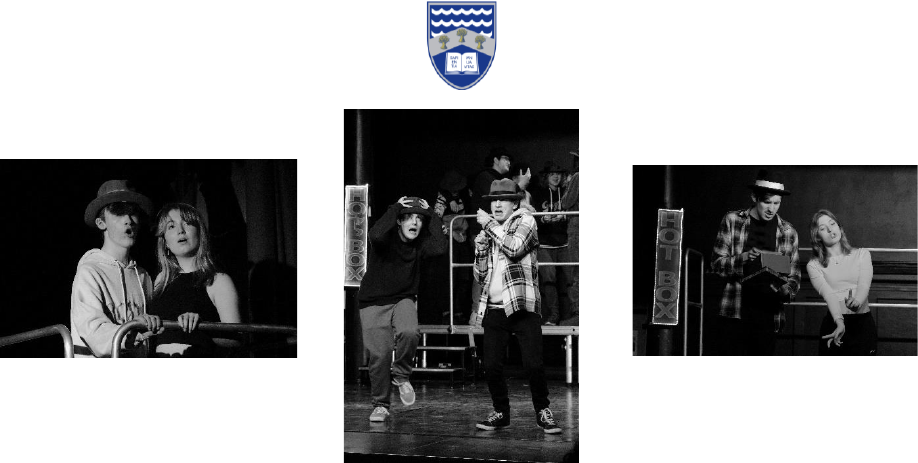
26
Personal, Social, Health and Economic Education
PSHE complements the academic life of the school by giving students the skills and knowledge to lead
healthy and independent lives and become responsible citizens in a rapidly changing world. We use a
range of teaching and learning styles to suit the different needs of our students.
We place an emphasis on active learning and ‘co-operative’ learning by including all students in
discussions, investigations, and problem-solving activities. All students are taught in their teaching
groups, and they study different topics throughout the year.
In addition to our PSHE Education Programme, Years 7, 8 and 9 have an Activity Day in which students
are introduced to different leisure activities such as yoga and music as well as listening to experts
discuss crucial aspects of Health Education.
Cookery forms part of our PSHE programme and the emphasis here is on practical cooking.
Sex and Relationship Education
Sex and Relationship Education at our school aims to promote an understanding that positive, caring
environments are essential for the development of individual responsibility for both our bodies and
our behaviour.
Facts are presented in an objective and balanced way with students being encouraged to consider
their attitude and values. Sex and Relationship Education is taught as part of the Personal Social Health
Economic Education programme.
These lessons are complemented by visits from outside speakers during our Activity Days. Students
follow a programme from Year 7. Materials used in the sex education programme are available for
parents to see upon request.
Boys may be withdrawn from part or all, of the Sex and Relationship Education programme by parents
writing to the Headteacher.
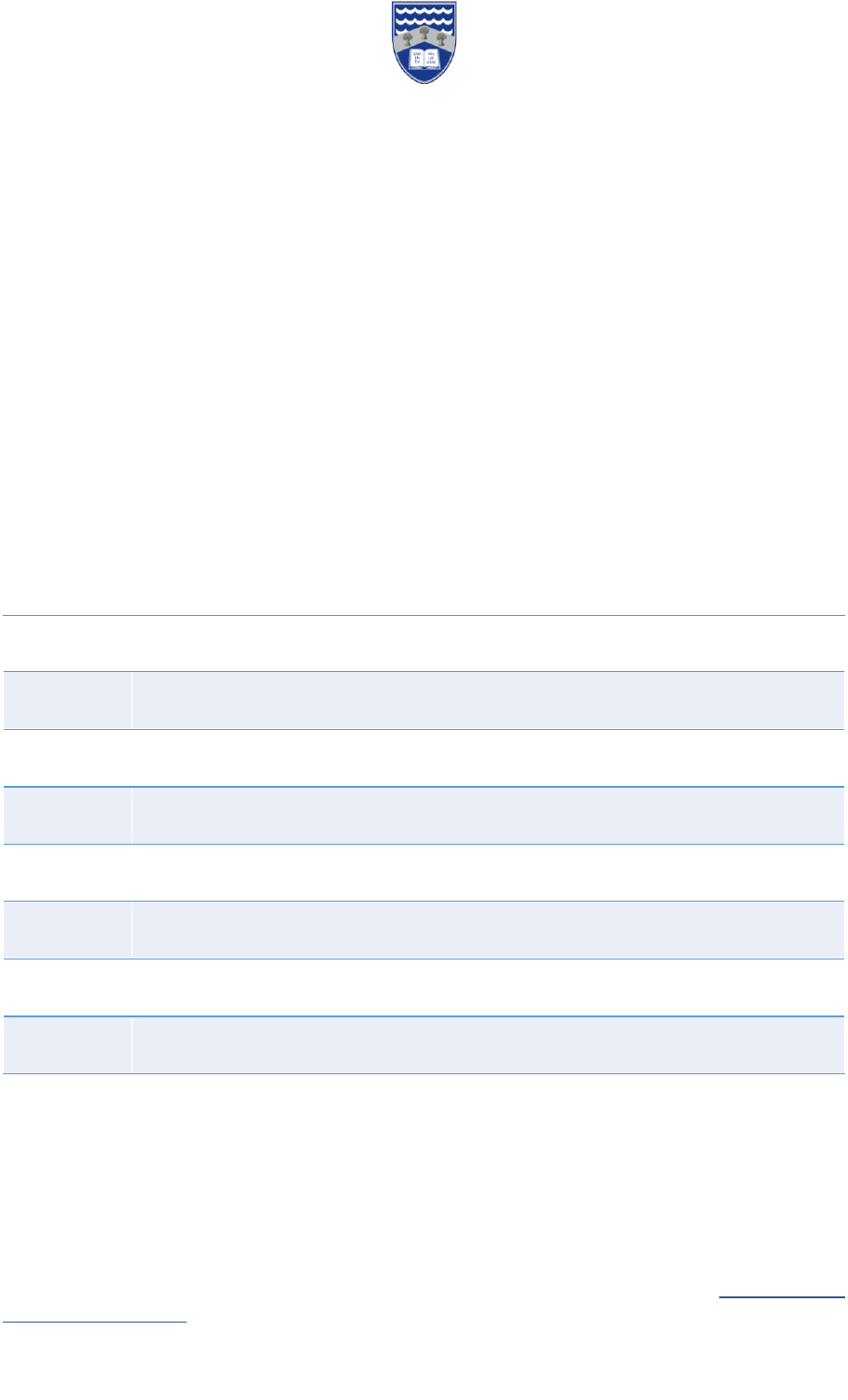
27
Careers Education, Information, Advice and Guidance
‘Encouraging students to develop their skills, have the confidence to succeed
and make informed decisions about the future’
At Wirral Grammar School for Boys, we pride ourselves on upholding the highest standards for the
Careers Education and Enterprise activity of our students. Our outstanding programme has been duly
recognised by professionals from Educate Northwest, who awarded us with the ‘Careers and
Enterprise Award’ in November 2022.
Through the wide variety of opportunities that are presented throughout the year, students are able
to engage in a number of activities to help them decide on their next steps at the various key stages
within their journey with us.
We are exceptionally proud of our provision and believe our students are being well prepared for life
beyond school. They are developing into enquiring, entrepreneurial, critical thinkers equipped with
the skills and tenacity required to face the challenges of their future ventures.
WGSB CAREERS EDUCATION PROGRAMME
Year 7
What is Careers Education? What are employability skills?
Year 8
Considering the different types of industries, sectors and careers available
Year 9
Further exploration of various careers available. GCSE option support
Year 10
Preparation for the World of Work: Mock Interviews and Work Experience
Year 11
Individual Careers Interviews. Post-16 option support
Year 12
Engaging in activities to boost employability including 2nd Work Experience
Year 13
Preparation for life post WGSB. 2nd Mock Interview. 2nd individual Careers
Interview. Post-18 option support
This is a very brief outline of what we cover at WGSB. We endeavour to provide opportunities to cater
for all students’ interests and abilities through various events such as careers fairs, bespoke careers
support groups, visits to businesses and universities and inspirational talks from employers and
alumni.
We communicate opportunities with our staff, students, parents and carers via weekly Careers
Planners. Every year group also has a dedicated Microsoft Teams page which is updated with work
experience, apprenticeship and careers opportunities. We have devised our own WGSB Careers
Information Platform where a plethora of resources for staff, students, parents and employers are
accessible through our school website. Each half term we publish a Careers Gazette which celebrates
the achievements of our students and showcases all the wonderful activity that has been taking
place.

28
Underpinning all our careers activity are the Gatsby Benchmarks, a set of eight criteria that all schools
should be working towards. We achieve above the national average on all benchmarks and we are
regularly endorsed by colleagues at Liverpool City Region Careers Hub as an example of good practice
on Merseyside. The destinations of our students are positive year on year, with many going on to
study at university, secure degree level apprenticeships or enjoy further training opportunities.
We regularly evaluate our programme to ensure that the interests of our students are being addressed
and we have a dedicated team of student Careers Champions who assist with collating information.
Our champions also act as ambassadors for the school, helping to organise events and look after
guests. Due to their high level of involvement and commitment they were awarded gold standard
status from the National Careers Week management team in July 2022.
Our Careers research platform of choice is Unifrog. Through this, students have access to a range of
tools enabling effective careers exploration, comparison of university courses, development of
application documents such as CVs or personal statements and recording of any careers-related
experiences thus forming a digital record of achievement.
Should you have any questions about our Careers Education programme please do not hesitate to
contact our Careers and Progression Manager through the School Office.
Special educational needs and disabilities (SEND)
Special educational needs and disabilities (SEND) can affect a child or young person’s ability to learn.
The areas of need can be classified in 4 ways:
• Communication and Interaction
• Cognition and Learning
• Social, Emotional and Mental Health
• Sensory and/or physical needs Visual Impairment Deaf/Hearing Impairment Physical and
Neurological Impairment
Students who are identified as SEND are placed on the school’s SEND register to ensure that they
receive the support that is necessary to enable them to achieve to their best ability. Intervention
depends on their level of need, following a period of careful consultation and monitoring, by all staff
academic and pastoral.
Miss Vaughan, our SENDCo establishes how to offer the most appropriate support and then works
closely with the student, their parents / carers, Head of Year, the Learning Mentor and outside
specialist agencies.
We consult regularly with an Educational Psychologist who advises us in how best to support our
students. Our team also includes Learning Support Assistants and dedicated Teaching Assistants
then can support pupils in and outside the classroom. We have a dedicated SEND base within school
for pupils to access when they need, which offers a safe space within our school. We strive to always
place the pupil in the centre of all support and strive to allow every student to achieve to the best of
their ability.

29
Equal Opportunities and Diversity
At Wirral Grammar School for Boys, we believe that the diversity of our school community is a strength
that is to be celebrated, encouraged and supported. It is our commitment that all students are treated
fairly, with respect and have equal access to opportunities, to fulfil their individual potential and
achieve to the best of their ability. We aim to provide a nurturing, positive and supportive
environment, in which students feel confident to express themselves, embrace their individual
differences and share in our common sense of community and belonging.
To ensure that all our students feel valued as part of our school community, we encourage student
input on and participation in events and activities that are aimed at further promoting the value and
awareness of equality and diversity. Our current LGBTQ+ (Plus) club, have taken an active role in
helping to lead our annual ‘Diversity Week’ celebration, tailoring activities and events to meet the
needs of our students. We have partnered and formed close working relationships with charitable
organisations, aimed at supporting disadvantaged and vulnerable minority groups. It was through our
working relationship with the charity ‘Just Like Us’, that our staff and students were featured on BBC
Northwest, to discuss how we celebrate equality and diversity within our school. We provide a rich
extra-curricular offer, in addition to the opportunity for our students to form and join clubs, in which
students are encouraged to participate in visits, residentials and international trips, to meet with
students from a range of different cultures and backgrounds.
We aim to provide an enriching, inclusive and broad curriculum delivery, in which students are taught
about important milestones and leaders within marginalised groups and communities. This is further
built upon in our extensive PSHE curriculum and provision, which runs through our form tutor time,
assemblies and access to visiting guest speakers and organisations.
We will not accept or tolerate any discriminatory behaviour or language at Wirral Grammar School for
Boys. All students have equal rights and any discrimination related to difference by gender, race,
language, culture, ethnicity, sexuality, gender identity, and physical and mental ability, will be
investigated and taken seriously. Racist, sexist, homophobic, transphobic, and other forms of
prejudicial behaviour will always be challenged and dealt with equally and robustly. Any incidents of
discriminatory behaviour or language are recorded as such and would also result in restorative action,
accountability and further education.
We are committed to continually reviewing the effectiveness of our provision to ensure that we are
proactive in reducing and removing any barriers that may exist for our students.
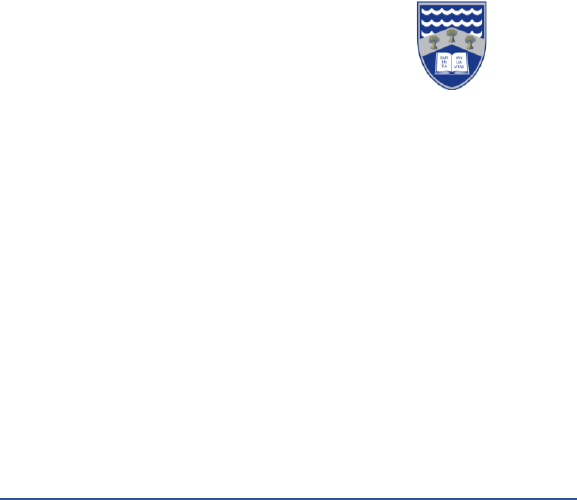
30
MONITORING AND REPORTING ON STUDENT PROGRESS
Keeping track of each boy’s progress in relation to his potential is essential in order to ensure that his
academic achievement is maximised. At Wirral Grammar School for Boys, we believe that top
achievement is available to any boy who applies himself, is self-motivated and well supported.
Maximising Expectation
We give all boys a clear indication of what they can achieve by showing them what students of the
same ability achieve in each subject across the country.
We only apply examination grade targets from Year 10 onwards.
While a boy’s target may be the grade that boys of similar ability most commonly achieve, it is also
the case that they can achieve a grade that is above this if they are determined to do so. At each
progress point, teachers will provide a current attainment grade that can be compared with the target
distribution for all students nationally.
Grading System – Years 7 to 9
In Years 7-9, grading is centred upon our ‘baseline’ testing using the CAT4 programme. This enables
us to set learning targets and measure the progress against these using the terminology of ‘mastering’,
‘securing’, ‘developing’, and ‘emerging’.
Grading system – Years 10 to 11
The grading system used in Years 10 to 11 reflects the structure that applies to national GCSE
standards (normally, Grades 9-1)
Grading system – Sixth Form
The grading system used in Years 12 and 13 reflects the structure that applies to national GCE A Level
standards (normally, Grades A*-E).
At each of the three reporting points, your son will be issued with a current attainment grade which
can be compared to your son’s expected grade. The attainment grade will be based on your son’s
more recent work.
Having a conversation with your son about his attainment and his expected grade range is an
important part of the process and this is something that all boys will do in school during the Form
Tutor Period.
A target report is issued for each boy in Year 9 onwards, and this contains information a more detailed
outline of what areas/skills he needs to improve to either sustain high attainment or demonstrate
further progress.
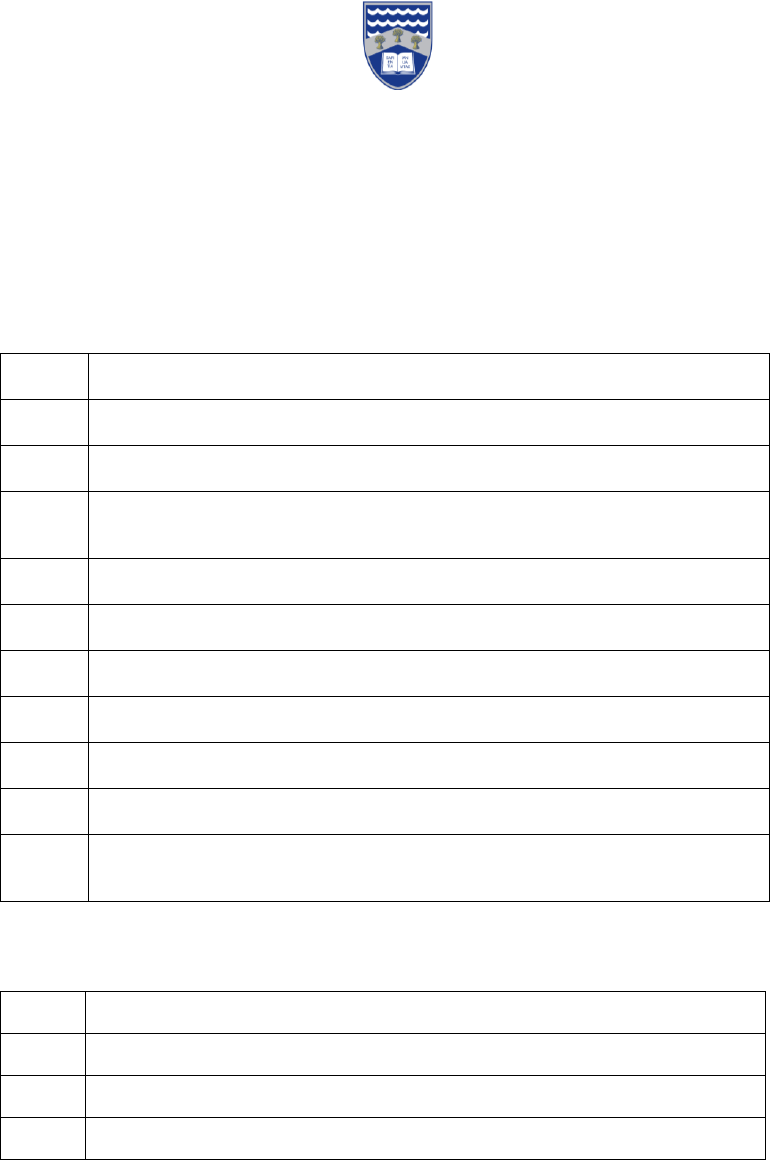
31
Attitude to Learning and Barriers to Learning
On each Progress Bulletin and Report, both Attitude to Learning and Barriers to Learning are also
recorded. These make use of the following codes, and the same explanations are also included with
both the bulletins and reports.
The ‘Barriers to Learning’ codes are:
(blank)
no concerns (all is well)
C
concentration concerns
D
causes disruption
X
behaviour in class has caused such concern that he has been referred to
the Head of Year
H
homework is not always handed in or lacks significant effort
Q
quality of work concern
O
organisation concern: occasionally forgets books or equipment
F
organisation concern: frequently forgets books or equipment
P
presentation of written work requires improvement
R
lacks resilience: gives up too easily and does not perservere
M
struggles to memorise facts/skills; more revision/practise is required to
improve test scores
The Key for Attitude to Learning is:
1
Consistently complies with all expectations
2
Usually complies with expectations
3
Some cause for concern
4
Significant cause for concern
Parents will be contacted by Heads of Years to celebrate success or when significant concerns arise.
• Subject teachers, Form Tutors and Heads of Year monitor progress carefully and intervene where
necessary to help boys get back on track. This support can take the form of extra study sessions,
regular mentoring, and meetings with parents.
• Parents’ Evenings take place each year and this is an opportunity for parents to meet individual
subject staff. All parents’ evenings now take place remotely using the SchoolCloud remote system.
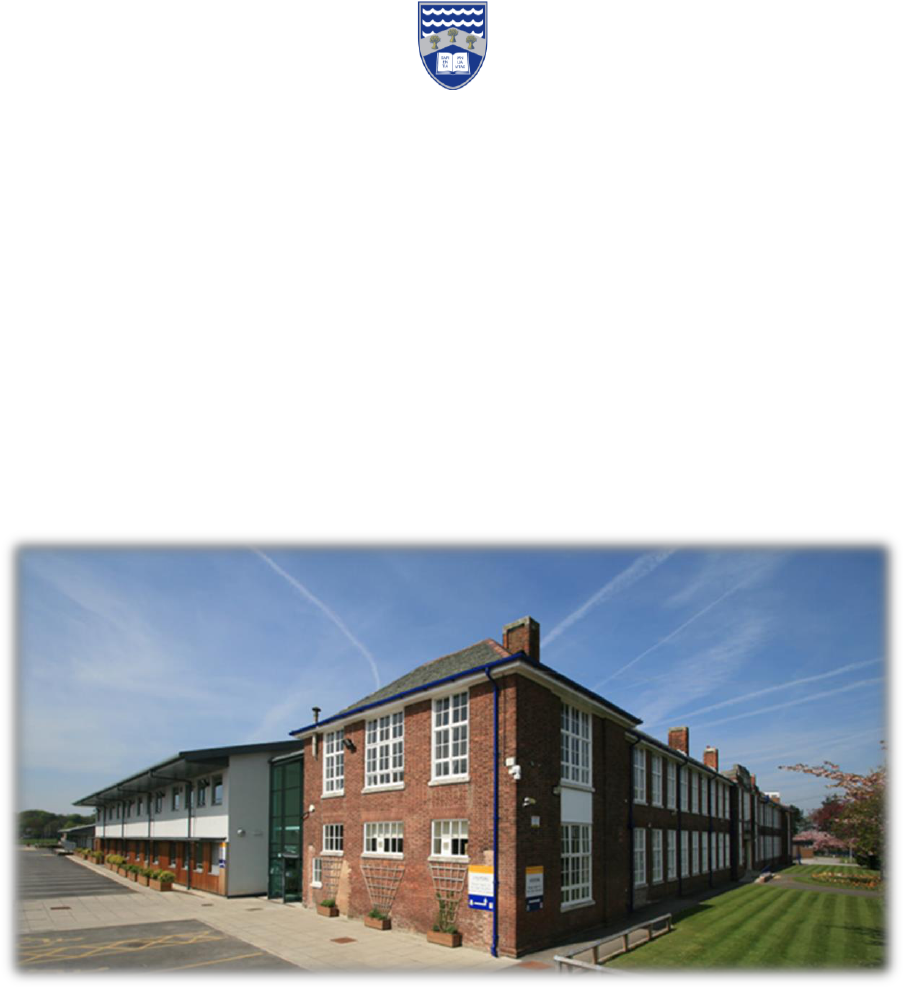
32
• Where a teacher has several groups, it may not be possible for the teacher to have meetings with
all parents at a Parents Evening. In such a situation, the teacher would contact parents and provide
the opportunity for verbal feedback.
• Whenever parents feel that they would like an ‘up-date’ on their son’s progress, we are happy to
provide this. Weekly monitoring is arranged for every lesson when we feel there is a need to do
so.
• For students in Years 10 and 11, following the mock examinations, results and progress grades are
issued on a ‘Mock Results and Progress Review Day’. On this day, boys are allocated an
appointment to meet with a member of the Leadership Team to review their results.
• For students who are performing significantly ‘below target’, intervention meetings are arranged
with the Deputy Headteacher and Head of Year. Where it is considered necessary, parents may
also be asked to attend these meetings so that there is a unified approach to supporting those
individuals concerned.
ASPECTS OF OUR SCHOOL ROUTINES
Timing of the School Day
We have a 2-week timetable, comprising 50 periods in each cycle (25 periods in each week).
Each day is divided into five one-hour lessons. All students will be issued with a two-week timetable
that clearly indicates ‘Week A’ and ‘Week B’.
The structure of the school day is as follows:
8.55 Bell – all must be on site outside Tutor Rooms
9.00 – 9.20 Tutor Period
9.20 – 10.20 PERIOD 1

33
10.20 – 11.20 PERIOD 2
11.20 – 11.40 Break (but all to move towards period 3 at 11.35 warning bell)
11.40 – 12.40 PERIOD 3
12.40 – 1.40 Lunch (but all to move towards period 4 at 1.35 warning bell)
1.40 – 2.40 PERIOD 4
2.40 – 3.40 PERIOD 5
Equipment
Being prepared for learning is an essential expectation. All boys are expected to have the correct
equipment for their lessons (pens, pencils, rulers, books etc).
Care of Exercise Books
The organisation and presentational standards in exercise books must be maintained to a high level.
Plastic book wallets are available to cover and protect exercise books.
Basic requirements are for boys to write neatly, make titles and headings clear and include the date
at the top. In our experience there is a high correlation between taking a pride in presentation and
high levels of achievement. Work that is clear, neat and set out properly is easier to revise from when
it comes to tests and examinations.
Graffiti on or in exercise books is not acceptable.
Catering
Our catering staff provide a variety of hot and cold food menus each day at break and lunchtime. Cash
is not accepted in the canteen and all payments are made via MCAS (My Child at School).
Boys are provided with a range of healthy options and all menu items are prepared with healthy
ingredients.
Some boys prefer to bring sandwiches to school each day.
When the weather is fair, boys are expected to be outside although they may decide to use the
Learning Resource Centre for reading and study.
The playing fields are available when they are dry. On occasion (and particularly during wet
lunchtimes) boys are permitted to use the school hall to sit and socialise. Outdoor seating areas are
available for students to use at breaks and lunchtimes; these are situated in areas of the playground.
Sixth form students are allowed to leave the school site during break and lunchtime. It is important
that all students behave in a way that both upholds the excellent reputation of the school and is
respectful to local residents. Sixth formers have access to Norm’s Deli adjacent to the main dining
room.

34
Late return from break or lunch will not be tolerated.
Use of the Learning Resource Centre
At WGSB, we believe our LRC is central to learning and plays a key role as a place for encouraging
innovation, curiosity and problem solving, we expand classroom learning by reading creative works
by authors from around the world allowing students to access information, knowledge building,
deep thinking and lively discussion.
The LRC is open 8am until 4pm Monday - Friday including during breaks and lunch. We are an open
access LRC, allowing students to review our catalogue 24/7 via our school website, we also provide
laptops for study purposes including our recently acquired Accelerated Reader Programme within
the LRC.
Security of Belongings
Please ensure that all belongings (uniform and equipment) are fully labelled with your son’s name.
School Calendar
The school calendar is displayed on the website, this contains details of Parents’ Evenings, visits,
important activities and sports fixture arrangements.
Additional calendars containing examination dates are issued to boys taking external exams.
The calendar may have changes and alterations during the year. When this is the case, we will aim to
communicate these to all parents using MCAS.
Sports fixtures are calendared on our dedicated sports website,
https://sport.wirralgrammarboys.com/. Parents can also access the team sheets for each age group,
but these are password protected for safeguarding reasons.

35
TERM DATES AND HOLIDAYS 2023 – 2024
Autumn Term 2023
Please note the phased opening:
School opens to students in Year 7 and Year 12 on Wednesday 6
th
September 2023
School opens to all students on Thursday 7
th
September 2023
October Half – Term
School closes on Friday 20
th
October 2023 and re-opens on Monday 30
th
October 2023
Christmas
School closes on Friday 22
nd
December 2023
Spring Term 2024
School opens on Monday 8
th
January 2024
February Half – Term
School closes on Friday 16
th
February 2024 and re-opens on Monday 26
th
February 2024
Easter
School closes on Thursday 28
th
March 2024
Summer Term 2024
School opens on Monday 15
th
April 2024
MAY BANK HOLIDAY
School closed on Monday 6
nd
May 2024
May Half – Term
School closes on Friday 24
th
May 2024 and re-opens on Monday 3
rd
June 2024
Term Ends
School closes on Friday 19
th
July 2024
INSET Days 2023-2024 – school closed to students.
INSET day 1 Monday 4
th
September 2023
INSET day 2 Tuesday 5
th
September 2023
INSET day 3 Monday 27
th
November 2023
INSET day 4 Monday 22
nd
July 2024
INSET day 5 Tuesday 23
rd
July 2024
There will be a day allocated in
September 2023 for 11+ Testing
when the school will be closed
but students will participate in
home learning, with teacher
availability online.

36
MONEY MATTERS
Making Payments to School
Friends’ Programme
An important strength of our school is parent support for our Friends’ Programme. We are very proud
of the wide-ranging opportunities available for our boys, many of which would not take place without
the Fund.
An annual donation of £20 or more allows us to maintain a breadth of activities, to provide
recreational equipment, subsidise travel and pay for some of the ‘extras’ around the school including
visiting lecturers and extra-curricular activities. Donations can be made by standing order.
MCAS
We operate an on-line payments system to enable Parents to pay for school trips, events and to top-
up cashless catering balances. Parents will receive an invitation via email to register with MCAS.
Cashless Catering
The School Canteen operates a biometrics/Cashless Catering till system which will require parents’
consent in at the start of Year 7. Boys who are eligible for free school meals are registered onto the
system automatically. All payments go directly to our approved partner, Catering Academy Ltd, who
are contracted to provide a compliant school meals service to all students.
Financial Support
Registering for Free School Meals
Registering for Free School Meals is done online via the below link.
Online FSM Application (cloudforedu.org.uk)
Please note - where boys receive free school meals, they use the same biometric system as all pupils
meaning that students eligible for Free School Meals are not separately identified by others.
If you think you are eligible, it is important to apply as this registers your son for pupil premium; if you
are eligible for pupil premium you will be entitled to additional support such as an allowance for School
uniforms, i.e. blazer, PE kit.
Sixth formers are able to apply for 16-19 Bursary; full details are available on our website.

37
PARTNERSHIPS WITH PARENTS
Partnership for Students’ Achievement
At Wirral Grammar School, we believe that education of our boys is a partnership between teachers,
parents, and the students. We appreciate that parents expect, not only to be fully informed about the
progress their son is making at school, but also to be involved in their education.
Parents of boys at Wirral Grammar School are very supportive and there is a genuine sense of
collective responsibility in securing the highest of expectations for our students. Parents should always
feel they can contact school for support at any time; making initial contact with their son’s Form Tutor.
Home: A Place to Study
Having a space whether it be the bedroom or part of another room in the home in which your son can
work is important. Effective, independent learning habits contribute to success. Establishing a routine
for study that fits in with home life is also important and this is especially the case when it comes to
homework and exam revision.
Parents’ Evenings
All Parents’ Evenings take place virtually using the SchoolCloud App.
Attendance is always very high and we strive for 100% ‘virtual’ attendance.
There is a Parents’ Evening for each year group at different times throughout the year. Ahead of a
Parents’ Evening, you can book appointments using the App (information is provided about this
ahead of the events). Please be aware that it may not be possible to see all of your son’s teachers
because some staff teach more than one class in a year group. In such situations, the class teacher
can arrange to provide parents with additional information about their son’s progress.
Beyond Parents’ Evening, we have an ‘open door’ policy for parents and will be pleased to organise
appointments. Where a parent has a concern about their son’s progress, they should contact their
son’s Form Tutor.
ICT at Home & IT Equipment for Personal Use
As a member of this school, your son is entitled to download and use the latest version of Microsoft
Office Professional on up to 5 devices including tablets and phones, this is accessed through your son’s
school email and more information is available on the school’s website under ‘E-Services’. Students
have also been provided with cloud storage through Microsoft’s OneDrive for Business. Microsoft 365
is only valid whilst your son is at the school, once he leaves the account and license will be de-activated
and all emails and files will be deleted.

38
From time-to-time issues arise because students are making inappropriate use of ICT resources and
the internet outside of school.
At their best, networking sites provide a means of constructive social interaction between friends. At
worst, they become an unhealthy distraction when use becomes habitual. Within school, students
learn how to use the internet safely and appropriately, however access to social networking sites is
restricted. For information on how you and your son can remain safe on-line at home, please refer to
the ‘E-Safety’ area on our website.
We are often asked whether students should have their own laptop or tablet for use in school. While
these are not essential items, they are clearly helpful for home study. Increasing numbers of boys
bring laptops or tablets into school, especially in the Sixth Form. Our IT staff can give guidance to
parents who are considering purchasing these items.
Website
Our school website is an important source of information and a vehicle for communication between
school and home. Our website address is www.wirralgrammarboys.com All letters which are sent
home via your son are also emailed via MCAS. If you have not given the school your details please
email your name, your email address, your son’s name and tutor group to
schooloffice@wirralgrammarboys.com
Social Media
When utilised purposefully, social media provides an excellent forum for celebrating achievement. At
Wirral Boys we have a Facebook page (@WirralGSB) and Twitter Feed (@WGSB). We keep these
updated with news of events.
An insight into our Careers Education Programme and WGSB6 can be found on Instagram and Twitter
(@wgsbsixthform, @wgsbcareersed)
Home Learning
We are increasingly making use of on-line resources to provide for study at home and this was best
seen during the Covid-19 pandemic when schools were forced to close. All students have access to
Microsoft 365 with 1TB of cloud storage. ‘MS Teams’ is our main method for setting work through
‘assignments’ which also allows for individual feedback and face-to-face video sessions.

39
The Governing Body
Our Governing body includes representatives from our community. Many of our Governors are, or
have been, parents of boys attending the school. Our Governors have a wide range of professional
backgrounds and are able to provide advice, support and ‘critical friendships’ with regard to strategic
developments at the school.
Governing Body meetings take place every term with additional committee meetings for Finance,
Personnel Matters and Health & Safety. The Headteacher prepares a termly report to the Governing
Body on achievements and developments.
Governors meet with senior members of staff to focus on the specific areas of Curriculum, Assessment
and Achievement, Behaviour and Attendance and Sixth Form.
Parents’ Association
Any funds raised by our PA are invested in resources for the boys. Examples of recent support include:
the financing of a new school minibus, refurbishment of the main School Hall and new equipment to
support extra-curricular Music and photo display boards around school.
We truly appreciate all members of our PA who assist at school functions (school plays, musical
evenings, open evenings) and other fundraising events.
All parents become members of our PA as soon as their child starts school with us and we always
welcome any support you can give.
Disclaimer
Our WGSB Handbook is renewed on an annual basis. To accompany this publication we provide separate
information on examination results, staff lists etc. Specific publications provide curriculum details and course
information.
While we endeavour to keep our WGSB Handbook as up-to-date as possible, changes to school policy do occur
from time to time.
